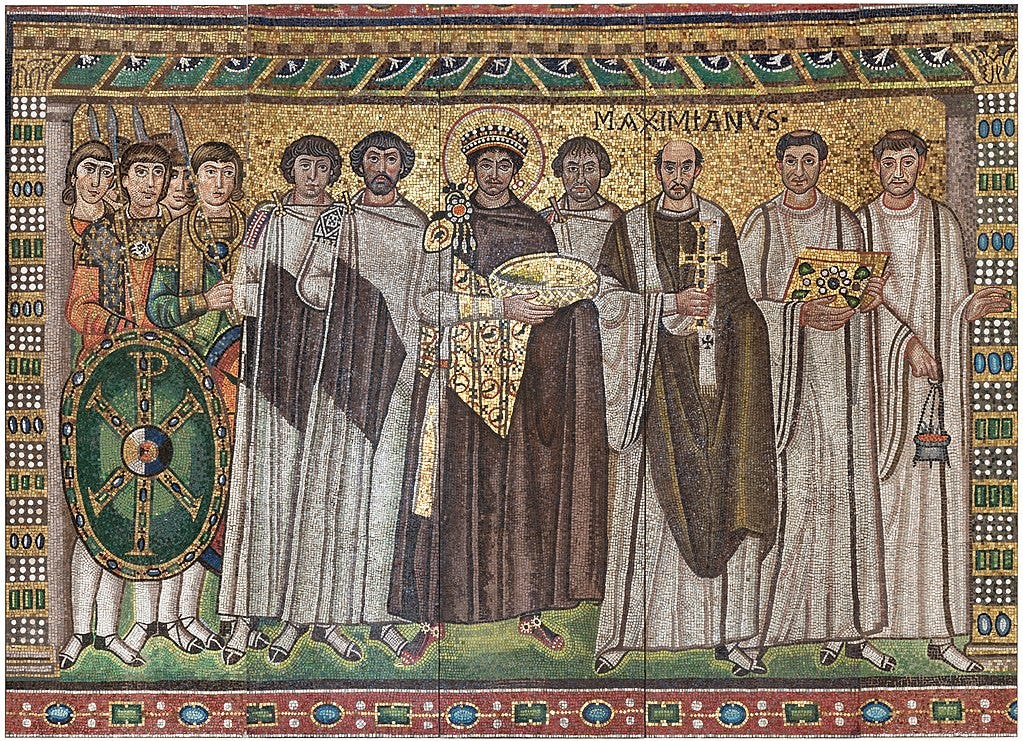Dear Reader,
In the 18 months before Trump got elected, I was writing what I believed would be my career-defining magnum opus: an epic work of historical fiction set in the Byzantine Empire around the time of the First Crusade. I put this project on hold for two reasons: first, because I felt it was my patriotic duty to report on Trump/Russia, and, second, because nothing scares off the modern reader like the phrase “epic work of historical fiction set in the Byzantine Empire around the time of the First Crusade.” Further, I was told that editors wouldn’t consider the manuscript because I hadn’t written a historical book before, and what could the guy who wrote Fathermucker possibly know about history? (N.B. If you are an editor or a publisher who might be interested in such a project, my DMs, as the expression goes, are open).
My Byzantine book came to mind this week, as I contemplated the presidential rankings. The reason the job of president is so difficult is because it’s impossible to execute without making literal life-and-death decisions on the daily. And who wants that dread responsibility? Most of us are made uneasy by having to choose which restaurant to hit up for takeout, or which Netflix show to stream. I don’t even want to READ Sophie’s Choice, let alone make it. In this short excerpt from my book, our 12th-century narrator shares her thoughts on an 11th-century emperor named Constantine X Doukas—a lovely man, but a crappy ruler:
Constantine X was described by both [the advisor and historian] Psellos (in his book) and Maria (in conversation with me) as meek, patient, kind, sensitive, compassionate, and merciful. He was, apparently, such a good man that he could not conceive of anyone else being evil.
Ah, but the selfsame qualities that made him a lovely father-in-law and a model Christian made him a bumbling and ineffectual Augustus. I know that there are heinous human beings who lust for blood and derive sick pleasure in the slicing off of ears and the lopping off of heads. Men of this stripe are infidels, for none who love Christ would revel in the infliction of pain. No true Christian wants to condemn another to death. Nevertheless, an Emperor must not shirk the responsibility of his office. He must take it upon himself to must enforce the law, however unpleasant its enforcement might be. This, after all, is his primary function. If “the most dreadful crimes” have indeed been committed, retribution must come. If the law requires the guilty to lose his nose, his nose should be cut off, or his hands, his eyes, his testes. And if, in those rare cases, the law mandates a man to die, then die he must. To execute the law, the Emperor must execute the murderer, the conspirator, the rapist, the deserter, the traitor. Anything less is pandemonium. Even Jesus Himself came to bring the sword! Anyone unwilling to discharge this sacred duty has no business taking up the purple. Psellos writes that the tendency to ignore the sage advice of counsellors—which is to say, the counsel of Psellos himself—is the “incurable malady of Emperors,” and the cause of the decline of the Roman Empire. Fie. The cause is weakness. Weak men like Constantine Doukas unable or unwilling to exercise their full power. Let history be our guide: Augustus, Trajan, Constantine, Justinian…the Empire thrives when the Emperor himself is strong!
I’m not quite as hard-ass, or as Christ-fearing, as my 12th century narrator, but she makes some valid points. Don’t we want decisive leaders, especially in times of national emergency? Isn’t the willingness to call the shots in those extremely stressful circumstances the ultimate test of leadership? It’s no accident that two of the three presidents universally hailed as our best presided over the two bloodiest wars in American history: World War II and the Civil War. The third made his name by winning the Revolutionary War. One of our worst Chief Executives, meanwhile, a weakling who was coerced into initiating conflicts with two different nations halfway around the world, has spent the 20 years since painting portraits of soldiers wounded in his ill-conceived military misadventures. This attempt at artistic atonement suggests that he has a soul, and his soul is in torment. It also suggests that he knows, deep down, that his own wishy-washiness, his own weakness of character, caused those men and women to be wounded—and untold others to die.
Which brings us to today’s “Sunday Pages.” A.E. Housman (1859-1936) was a professor of Latin at Cambridge University, and was well acquainted with the Byzantines and their forbearers, the Romans. This short poem sums up, in a few lines, what it took my 12th-century narrator many more words to express:
The Pope
It is a fearful thing to be
The Pope.
That cross will not be laid on me
I hope.
A righteous God would not permit
It.
The Pope himself must often say
After the labours of the day
'“It is a fearful thing to be
Me.”
Photo credit: Fresco of the Byzantine Emperor Justinian and his entourage, at Ravenna.





Finish the book. You are able to write historical fiction that will resonant for the 21st Century. A good publisher will definitely be interested.
One of the interesting things about Byzantine mosaics such as this one (The Emperor Justinian and his Retinue) is that the people do not have any ground under their feet. Justinian’s little unplanted flippy floppy feet speak to his main interests, which were spiritual and other-worldly rather than related to being a thug ruler on earth, for which the job of emperor really called.